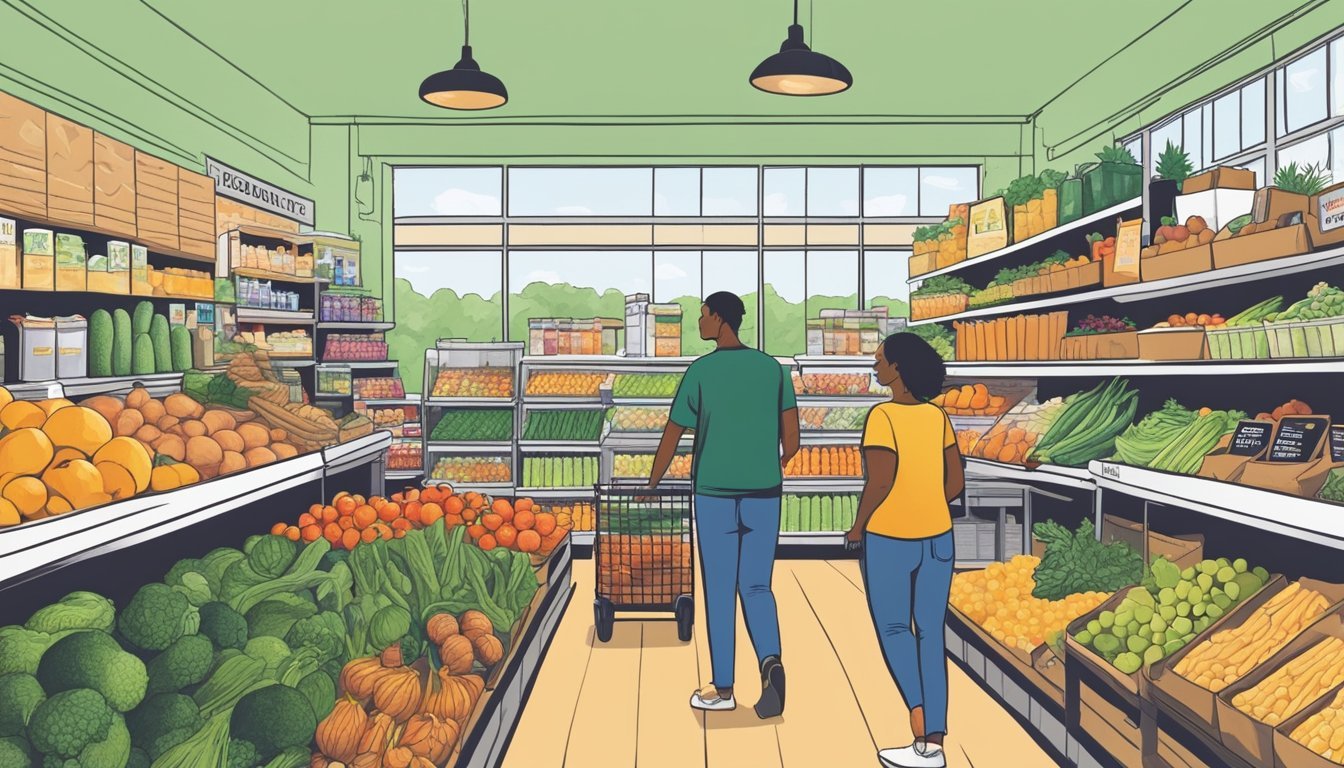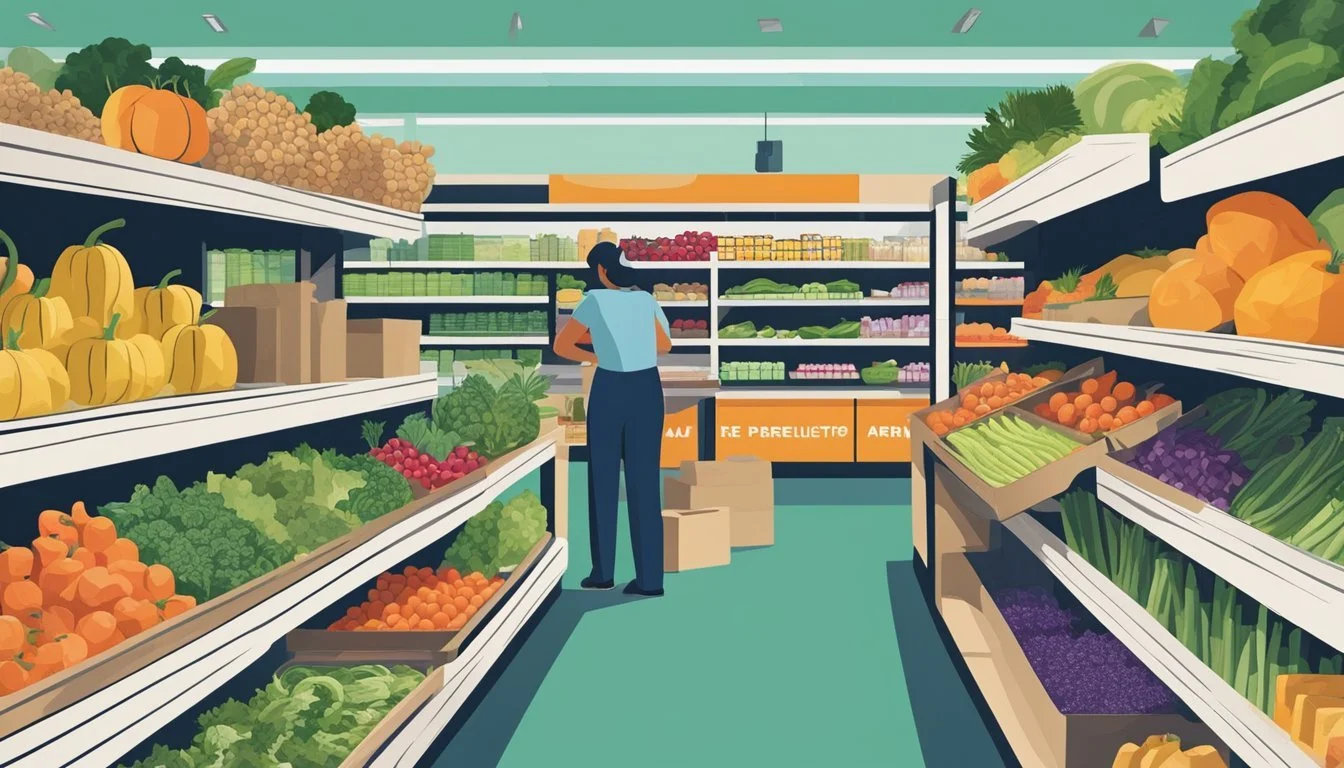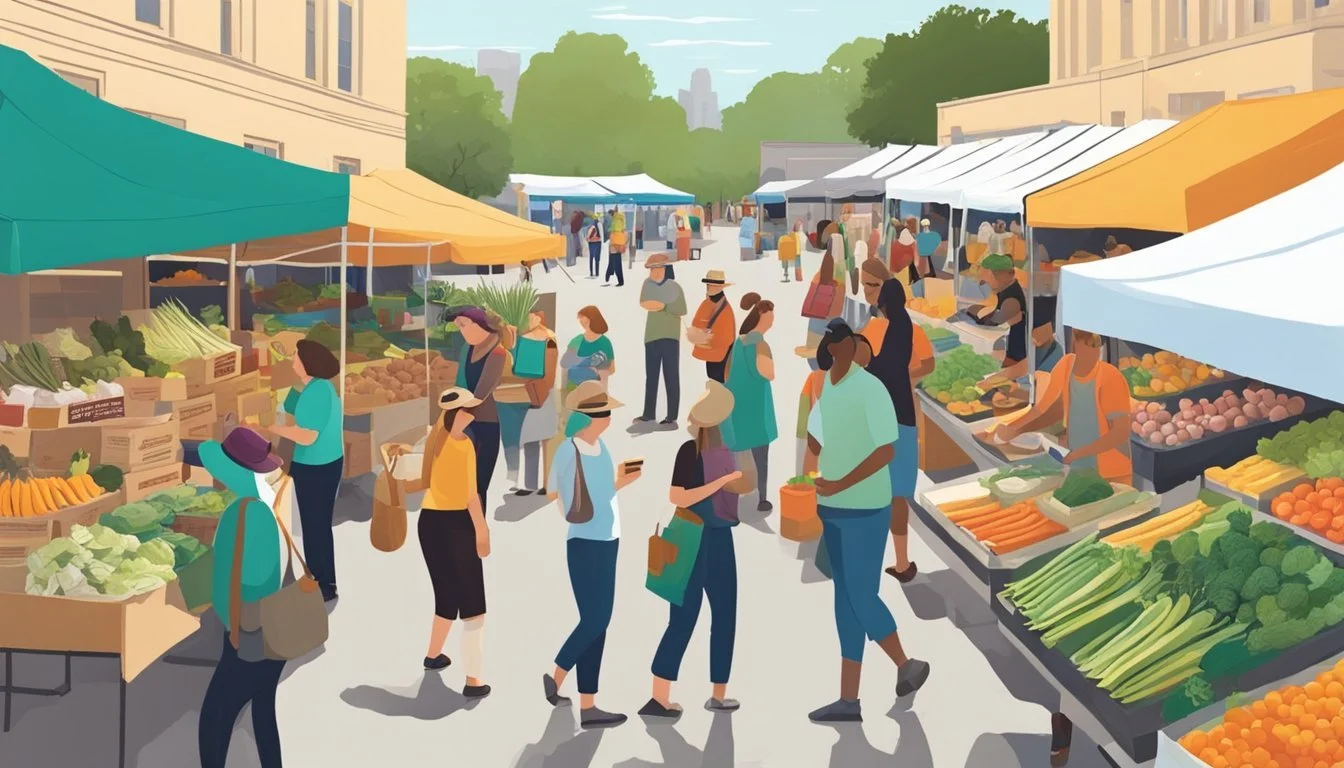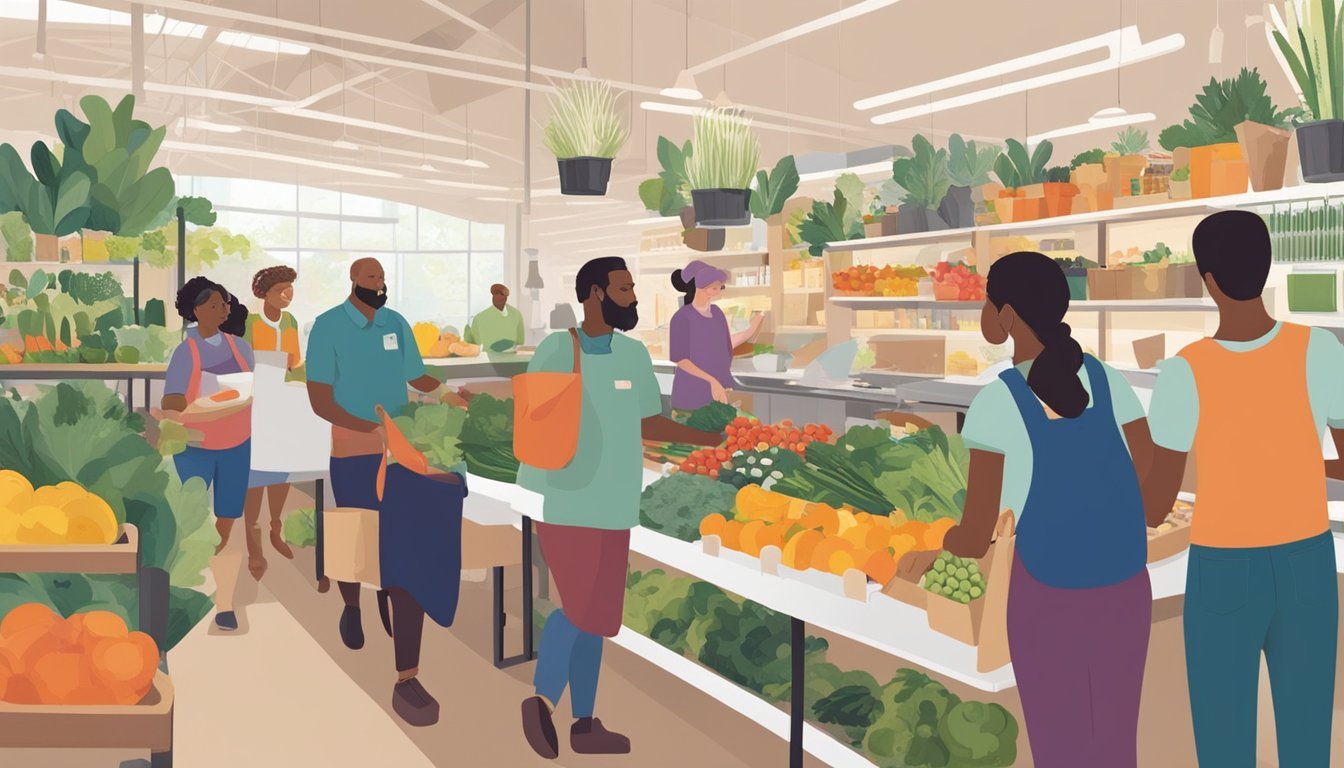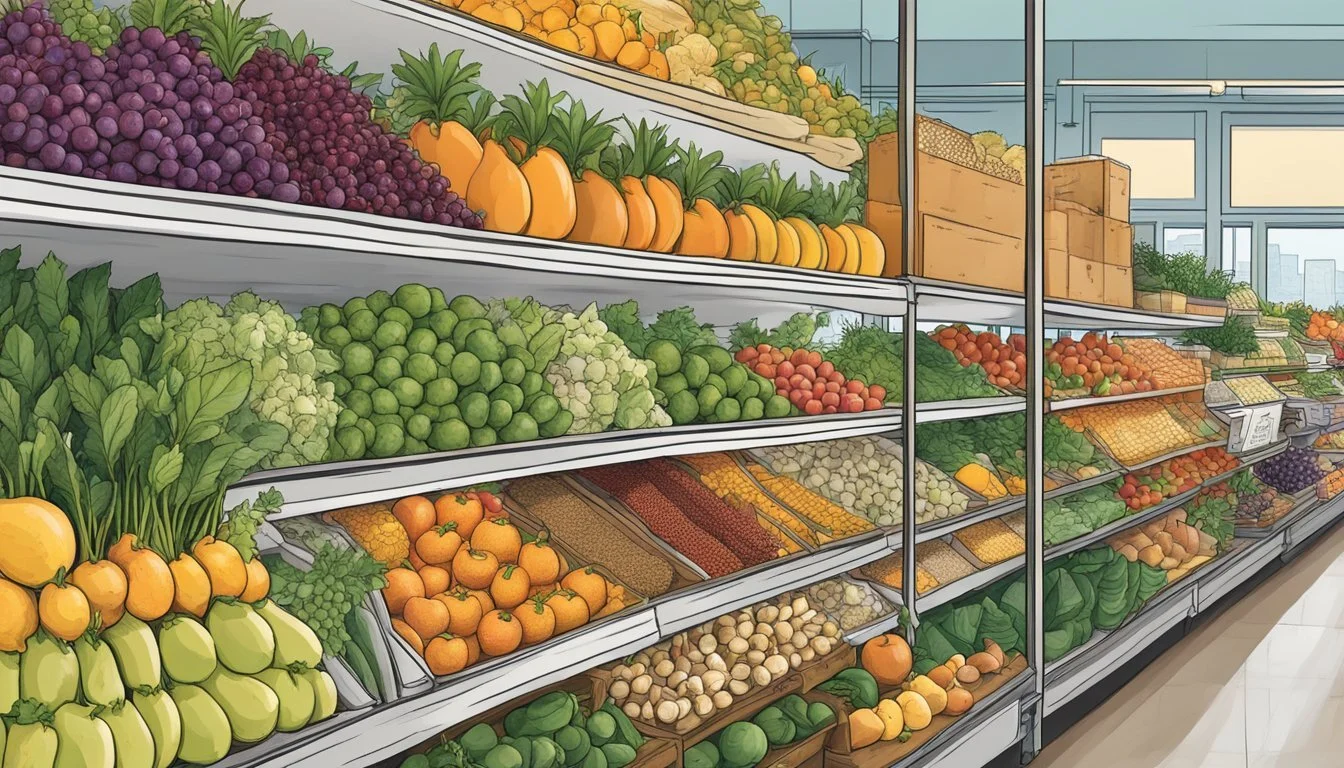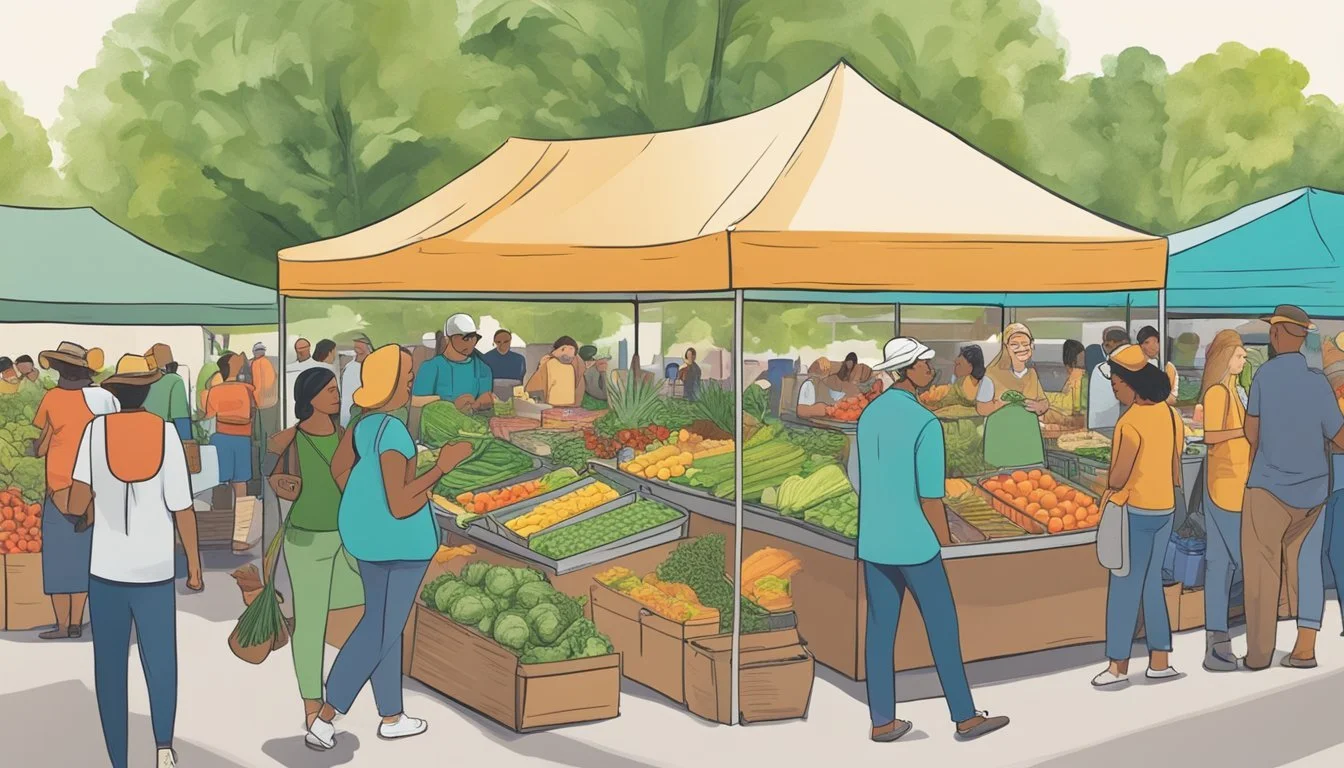Guide to Food Co-Ops in Austin, TX
Your Local Resource for Community-Based Groceries
Food cooperatives, commonly known as food co-ops, offer a unique approach to grocery shopping and community building. In Austin, Texas, a city known for its vibrant local food scene and community-oriented ethos, food co-ops have taken root and thrived. They operate on the principles of collective ownership and democratic control, where members have a say in the operations and decisions of the store. Unlike conventional supermarkets, Austin's food co-ops emphasize organic and locally sourced products, aligning with the city's environmental and health-conscious values.
The landscape of Austin's food co-ops is diverse, including longstanding institutions and more contemporary initiatives. Wheatsville Food Co-op, for example, has served the central Austin community for decades, distinguishing itself as the only retail food cooperative in Texas with a significant number of invested owners. It not only offers a wide range of natural foods but also acts as a hub for local activities and engagement. Other co-ops in the area focus on equally important missions, such as improving health outcomes and reducing food insecurity by working directly with local producers and consumers.
These co-ops contribute significantly to the city's economy and social fabric by supporting local farmers, providing high-quality food, and disseminating information about sustainable practices. In turn, Austin's residents benefit from fresher produce and a stronger, more resilient local food system. Through community ownership and a commitment to the cooperative movement's values, these establishments foster a sense of belonging and mutual support that resonates deeply with Austin's communal spirit.
What Is a Food Co-Op?
Food co-ops in Austin, TX represent a community-centered alternative to traditional grocery stores, prioritizing local ownership and shared benefits. Highlighting a cooperative philosophy, they contribute significantly to community resilience through their unique business model.
Principles and Philosophy of Cooperatives
Food co-ops are anchored in a philosophy of cooperative living, where the focus is on mutual aid and community empowerment rather than profit maximization. They operate on a set of key principles which include:
Voluntary and open membership, ensuring co-op accessibility to all without gender, social, racial, political, or religious discrimination.
Democratic member control, with members actively participating in setting policies and making decisions.
Economic participation, with members equitably contributing to and democratically controlling the capital of their cooperative.
Autonomy and independence, with co-ops being self-help organizations controlled by their members.
Education, training, and information, whereby co-ops provide education and training for members, elected representatives, managers, and employees to contribute effectively to the development of their cooperatives. They inform the general public about the nature and benefits of cooperation.
Cooperation among cooperatives by working together through local, national, regional, and international structures.
Concern for community, with co-ops working for the sustainable development of their communities through policies approved by their members.
Benefits of Food Co-Ops for the Community
Food co-ops offer numerous benefits to the communities in which they operate:
Community resilience: By promoting sustainability and local sourcing, food co-ops help build a more resilient local economy capable of withstanding external pressures.
Member advantages: Members often enjoy benefits such as discounts, special orders, or a share in any profits generated.
Education and engagement: Regular workshops and events foster community engagement and promote education on healthy living and sustainability.
Empowerment of community members: Co-ops empower individuals by enabling them to have a say in business operations and the products offered, reinforcing cooperative living ideals.
Support for local producers: They prioritize local and organic produce, strengthening local growers and producers, and reducing the carbon footprint associated with transportation.
Sharing ownership and decision-making among the members, food co-ops serve as educational resources on cooperative principles while enhancing the economic and social fabric of their communities.
Discovering Austin's Food Co-Ops
Austin's food co-ops offer a unique shopping experience where community ownership and local produce are at the forefront. These member-owned entities emphasize food literacy, health, and economic benefit to the local community.
Wheatsville Food Co-op
Wheatsville Food Co-op is a fixture within Austin, operating as the only retail food cooperative in Texas. Since 1976, it has provided the central Austin area with natural food selections and has grown to over 21,000 invested owners. Wheatsville Food Co-op has two locations; the original store is on Guadalupe Street, and a second was launched on Lamar Blvd. They offer a range of products including hot and cold sandwiches from their deli.
Address (Guadalupe St. location): 3101 Guadalupe St, Austin, TX 78705
Phone: +1 512-478-2667
Other Notable Food Co-ops in Austin
Austin homes several other cooperative initiatives that contribute to the city's community-driven food scene. For instance, the Austin Community Food Co-op aims to enhance food accessibility and provide food literacy education, thereby supporting Austin's health and economy. Furthermore, some co-ops like Sunflower have a history dating back to the 1980s, focusing on vegetarian offerings and having served a diverse member community over the years.
Comparing Co-Ops with Traditional Grocery Stores
Food co-ops in Austin differ from traditional grocery stores in several ways:
Ownership: Co-ops are often member-owned and democratically run, giving members a voice in the operations.
Local Focus: They prioritize local and organic produce, thereby supporting regional farmers and producers.
Community Impact: Profits are often reinvested into local initiatives or shared among the members, unlike traditional grocery stores that may prioritize shareholder profits.
By choosing to shop at a co-op, consumers take an active role in supporting their community's economics, health, and sustainability.
Product Selection and Quality
Food co-ops in Austin provide a rich variety of high-quality food options catering to diverse dietary preferences and emphasizing the value of local, organic products.
Local and Organic Produce
Food co-ops in Austin stand out for their extensive selection of local and organic produce. They prioritize fresh, farm-sourced fruits and vegetables, which support both local agriculture and consumers' health. The produce section includes everything from leafy greens to ripe, seasonal fruits, ensuring that customers have access to nutritious options year-round.
Meat and Vegan Options
Customers at Austin's food co-ops can find a broad range of meat products characterized by their natural and organic quality. For those following a plant-based diet, the stores offer a comprehensive array of vegan alternatives. These options are designed to host no compromise on taste, presenting a variety that satisfies from tofu and tempeh to plant-based meats.
Specialty Food Items
The selection extends beyond the basics to specialty food items, meeting the needs and aspirations of Austin's diverse community. Shelves are stocked with both staple pantry items and unique, artisanal products. Whether shoppers are looking for dairy alternatives, gluten-free snacks, or gourmet condiments, the co-ops' commitment to high standards ensures all provisions meet a benchmark of excellence.
Supporting Local Economy and Producers
Food co-ops in Austin, TX, are more than grocery destinations; they are central to bolstering the local economy and ensuring that local farms and producers thrive. By prioritizing local sourcing and ethical practices, these co-ops play a vital role in sustaining the community's agricultural landscape.
Local Farms and Farmers
Austin's food co-ops embrace products from local farms, which helps to preserve Texas' farming heritage and supports beginning farmers. Consumers can expect fresh, organic produce that travels a short distance from farm to shelf, ensuring peak flavor and nutrition. By choosing co-ops, customers directly contribute to the livelihood of local farmers and the vibrancy of the regional economy.
Fair Trade and Ethical Sourcing
Beyond local boundaries, co-ops in Austin extend their support to global communities by incorporating fair trade products into their inventory. This ethical sourcing ensures that producers from around the world are compensated fairly, encouraging sustainable farming practices and a more equitable food system. Co-ops typically foster transparency in their sourcing, providing customers with the reassurance that their purchases champion both local and international producers.
Membership and Community Involvement
Participation in Austin's food co-operatives is not just about shopping; it's a form of investment in community and sustainable practices. Membership offers individuals a chance to contribute democratically to the governance of the cooperative and to enjoy the benefits of its services and community activities.
How to Become a Member
To become a member of a food cooperative in Austin, one typically pays a fee or purchases a share, symbolizing their part ownership and commitment to the co-op's values. For example, Wheatsville Food Co-op has more than 21,000 invested owners, reflecting a strong community base. Members often enjoy benefits such as discounts, voting rights, and a share in any profits. Specific details of membership may vary, so interested individuals should contact the co-op directly for exact requirements.
Steps to Membership:
Contact the co-op for membership details.
Complete any necessary application forms.
Pay the membership fee or purchase a share.
Community Supported Agriculture (CSA)
Community Supported Agriculture (CSA) represents a significant aspect of the cooperation between Austin food co-ops and local farmers. By subscribing to a CSA program, members receive periodic distributions of fresh, locally-grown produce, thus directly supporting local agriculture. CSA programs are an embodiment of sustainable practices and community engagement, central to the mission of many co-ops, including Austin Community Food Co-op and Wheatsville Food Co-op.
CSA Subscription Benefits:
Regular access to fresh and organic produce.
Strengthened farmer-consumer relationships.
Investment in local agriculture and community vitality.
Through membership and CSA participation, residents can play a direct role in Austin's local food economy, fostering a healthier, more connected, and resilient community.
Shopping Experience
The food co-ops in Austin offer a personalized shopping experience catering to a variety of consumer needs. From in-store services that enhance the physical shopping journey to online features that simplify purchasing, members and non-members alike can access fresh, local produce with ease.
In-Store Services
Food co-ops in Austin pride themselves on their community-oriented in-store services. Wheatsville Food Co-op, for example, is a full-service grocery store that offers a vast array of organic and locally-sourced products. Customers can find meat, dairy, eggs, produce, and goods baked on-site. Their staff is known for being knowledgeable and can assist shoppers in finding items aligned with their dietary preferences. Co-ops often feature:
Local Produce: Emphasizing fresh, seasonal items.
Specialty Goods: Including artisanal items unique to Austin.
Community Events: From educational sessions to food tastings.
Online Ordering and Delivery
For those seeking convenience, co-ops in Austin also provide robust online ordering systems. Customers can visit the website, browse the selection, and opt for delivery or curbside pickup.
Online Ordering: Easily accessible through co-op websites.
Delivery: Options available for direct-to-doorstep service, ensuring customers receive their groceries without compromising on freshness.
Curbside Pickup: A contactless way for customers to collect their pre-ordered groceries.
These services extend the accessibility of co-ops, allowing individuals to support local businesses and enjoy high-quality groceries even when they cannot visit the stores in person.
Location and Accessibility
Food cooperatives in Austin, TX, prioritize convenient access as a cornerstone of their mission. Central Austin is home to the notable Wheatsville Food Co-op, a fixture in the local community with a history dating back to 1976. Its commitment to being centrally located ensures that residents have easy access to a variety of natural food options.
South Lamar, another bustling area of Austin, also boasts accessibility to cooperative food sources. This ensures that community members in different parts of the city can enjoy the benefits of locally-sourced products without substantial travel.
Food co-ops in Austin typically position themselves in areas of high foot traffic and within reach of public transportation. This strategic placement underscores their dedication to community support and ensuring that healthy, fresh, and affordable food is accessible to as many people as possible.
One of the central characteristics of these co-ops is their focus on accessibility. They aim to provide barrier-free access to their services and goods, understanding the importance of inclusivity within the local food market. By doing so, they reinforce their foundational mandate of serving the community's economic, social, and cultural needs.
Below is a list of notable co-ops located within Austin:
Wheatsville Food Co-op
Address: 3101 Guadalupe St, Austin, TX
Features: Full service, centrally located, extensive range of products
Austin Community Food Co-op
Impact: Empowers local community through access and education
Services: Community member-owned grocery with a wide selection of local food
Each location leverages its community-oriented approach to integrate seamlessly into the Austin food ecosystem, enhancing the local market with a spirit of cooperation.
Additional Offerings and Services
Austin's food co-ops provide more than just grocery items; they cater to various lifestyle needs with an array of services including freshly made bakery goods and opportunities for community education and engagement.
Bakery and Prepared Foods
Wheatsville Food Co-op features an in-store bakery that offers a variety of pastries and bakery items, made fresh for customers seeking both sweet and savory options. Patrons can find a range of baked goods, from artisan bread to scrumptious desserts. They also provide a selection of prepared foods, including sandwiches, for those looking for a quick and nutritious meal on the go. Their deli menu often includes vegetarian and vegan options to cater to different dietary preferences.
Educational Workshops and Events
The Austin Community Food Co-op is committed to empowering the local community by offering educational opportunities to enhance food literacy. They organize workshops and events throughout the year, covering topics such as sustainable farming practices and the advantages of fair trade coffee. These events serve as a platform for members and non-members alike to learn, interact, and engage with food topics that matter to the community, fostering both education and connection.
Reviews and Customer Insight
Food cooperatives in Austin, TX, are held in high esteem by both regular patrons and visiting customers. They are often praised for their wide selection of locally-sourced products, including organic produce, dairy, and baked goods. The Wheatsville Food Co-op, a mainstay since 1976, garners positive feedback for its full-service amenities, member-owner approach, and contribution to the community.
Feedback highlights:
Popcorn Tofu: A popular dish among shoppers, frequently mentioned in reviews.
Customer Service: Recognized for friendly and helpful staff across various co-ops.
Breakfast Tacos: Another favorite at Wheatsville, often spotlighted in customer testimonials.
Ratings & Comments:
The Wheatsville Food Co-op has been rated 4.2 to 4.3 out of 5 stars on review platforms, reflecting consistent customer satisfaction.
Specific praise is given to outdoor seating, delivery, and curbside pickup options improving the shopping experience.
Consumer feedback points out the importance of community-centric values. Overall, reviews are fundamental indicators of these co-ops' health and success, depicting a vibrant, service-oriented culture that resonates with Austin's community focus.
Operating Hours and Contact Information
When exploring food co-ops in Austin, TX, it's essential to note the store hours and contact details to plan visits and inquiries effectively. This information comes in handy for potential shoppers and members looking to connect with their local cooperative community.
Store Hours
Wheatsville Food Co-op
Monday to Sunday: 7:30 AM - 11:00 PM
Sunflower Co-op
Contact for current hours: [email protected]
Contact Details
Wheatsville Food Co-op
Address: 3101 Guadalupe St., Austin, TX 78705
Telephone: (512) 478-2667
Website: Visit the official Wheatsville website for more information.
Sunflower Co-op
Address: 1122 3rd St, Austin, TX 78704
Email: [email protected]
Austin Community Food Co-op
For involvement inquiries: Contact Olivia Klein at [email protected]
Each co-op offers distinct experiences, products, and opportunities for community engagement. Shoppers are encouraged to reach out directly for the most accurate and up-to-date information.
Dietary Options and Inclusivity
Austin's food cooperatives are dedicated to catering to a variety of dietary needs and preferences. They take pride in offering a wide range of organic products, gluten-free options, and plant-based choices.
Gluten-Free and Allergy-Friendly Choices
Food co-ops in Austin understand the importance of supporting those with dietary restrictions due to allergies or intolerances. They typically offer a diverse array of gluten-free products, ranging from breads and pastas to snacks and baking ingredients. These items are carefully sourced and often come from local producers, ensuring fresh and organic options for consumers who prioritize health and sustainability alongside their dietary needs.
Vegan and Vegetarian Selections
Similarly, there is a wealth of vegan and vegetarian selections available at Austin's food cooperatives. Shoppers can find plant-based alternatives to meat, dairy, and eggs alongside a variety of other vegan staples. The co-ops provide a thoughtful assortment of organic produce, legumes, grains, and specialty foods like vegan cheeses and desserts, making it simple for those on a plant-based diet to find everything they need in one location.
Promotions and Loyalty Programs
Food co-ops in Austin typically offer a range of promotions and loyalty programs designed to reward members and frequent shoppers. Membership often comes with exclusive benefits including discounts, special pricing, and participation in decision-making.
Co+op Deals: Members may access bi-weekly sales featuring discounts on a wide range of products.
Co+op Basics: Offering value-priced everyday essentials, this program helps members save on groceries without sacrificing quality.
Co-ops like Wheatsville Food Co-op have a reputation for their customer-centric promotions. Members can take advantage of savings on high-quality, locally-sourced produce and goods. Membership discounts are a staple, alongside deals that are open to all shoppers, which helps foster community involvement and support for local producers.
Loyalty Programs Description Member-Only Discounts Reduced prices on select items for co-op members. Patronage Refunds A share of the co-op’s profits returned to members based on their purchases during a given period.
Members can also enjoy periodic special promotions such as discount days or coupons, which enhance the co-op shopping experience. Moreover, some co-ops might provide a loyalty card system where points are accumulated with each purchase that can later be redeemed for discounts or free items. These programs demonstrate co-ops' dedication to offering value to their communities and incentivizing ethical shopping habits.
The Future of Food Co-Ops
In Austin, TX, the evolution of food co-operatives demonstrates a proactive response to ongoing challenges and a commitment to serving their communities responsibly and sustainably.
Adapting to the Pandemic
During the pandemic, food co-ops have had to adjust quickly to changing public health guidelines and shopping habits. They implemented measures like online ordering systems, curbside pickup, and delivery services to continue providing access to fresh, local produce. Via contactless transactions, they maintained safe environments for both employees and consumers, ensuring their vital role in the community's food supply chain wasn't interrupted.
Sustainable and Equitable Growth
As food co-ops envision their future, they prioritize sustainable growth and equitable practices. Steering towards a regenerative agricultural model, they support farming practices that contribute to environmental sustainability. Equitability manifests in their efforts to provide a range of stakeholders, including consumers, producers, and employees with fair opportunities and benefits. Growth strategies encompass conducting feasibility studies for new locations and expanding services while keeping the central ethos of community support at the forefront.

